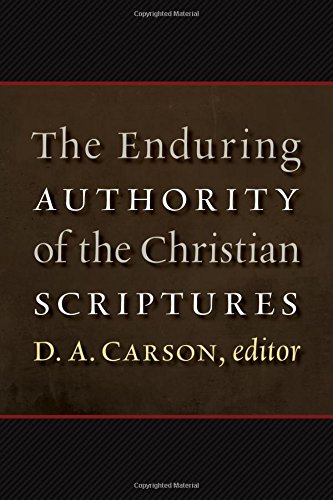A Brief Book Summary from Books At a Glance
Editor’s Note: Today we continue our series of “bonus” summaries covering all thirty-six chapters of the monumental volume, The Enduring Authority of the Christian Scriptures (D.A. Carson, ed.).
Chapter 3: The Bible in the Reformation and Protestant Orthodoxy
by Robert Kolb
(Summarized by Mark Coppenger)
This chapter centers on the ramps up toward, the teachings of, and the influences of Luther and Calvin. The former located the Spirit in the text; the latter saw the text as the Spirit’s instrument. Though both were “humanistic” in the sense that they made good use of linguistic and exegetical helps, engaging in “textual criticism, rhetorical analysis, and historical study of the context,” both were “inerrantists,” as were the scholars in their orbit, cf. Heinrich Bullinger’s declaration that the words of the biblical authors were “true, just, without deceit and guile, without error or evil affection, holy , pure, good, immortal, and everlasting”; and Calvin’s assertion that the Bible comes to people “from the very mouth of God.”
Building on the work of Peter Lombard, Hermann von Schildesche, Nicholas of Lyra, Paul of Burgos, Johannes Reuchlin, Jacques Lefevre d’Etaples, and Erasmus, Luther offered a law/gospel perspective (crushing demands setting stage for the unconditional promise of life in Christ) to replace the Catholic system of merit based on the “exchange of gifts” between God and believers. For him, preaching and teaching was a matter of “killing and making alive.” The Bible was God’s Word, the basis of all reality, uniquely valid. . .
[To continue reading this summary, please see below....]The remainder of this article is premium content. Become a member to continue reading.
Already have an account? Sign In
